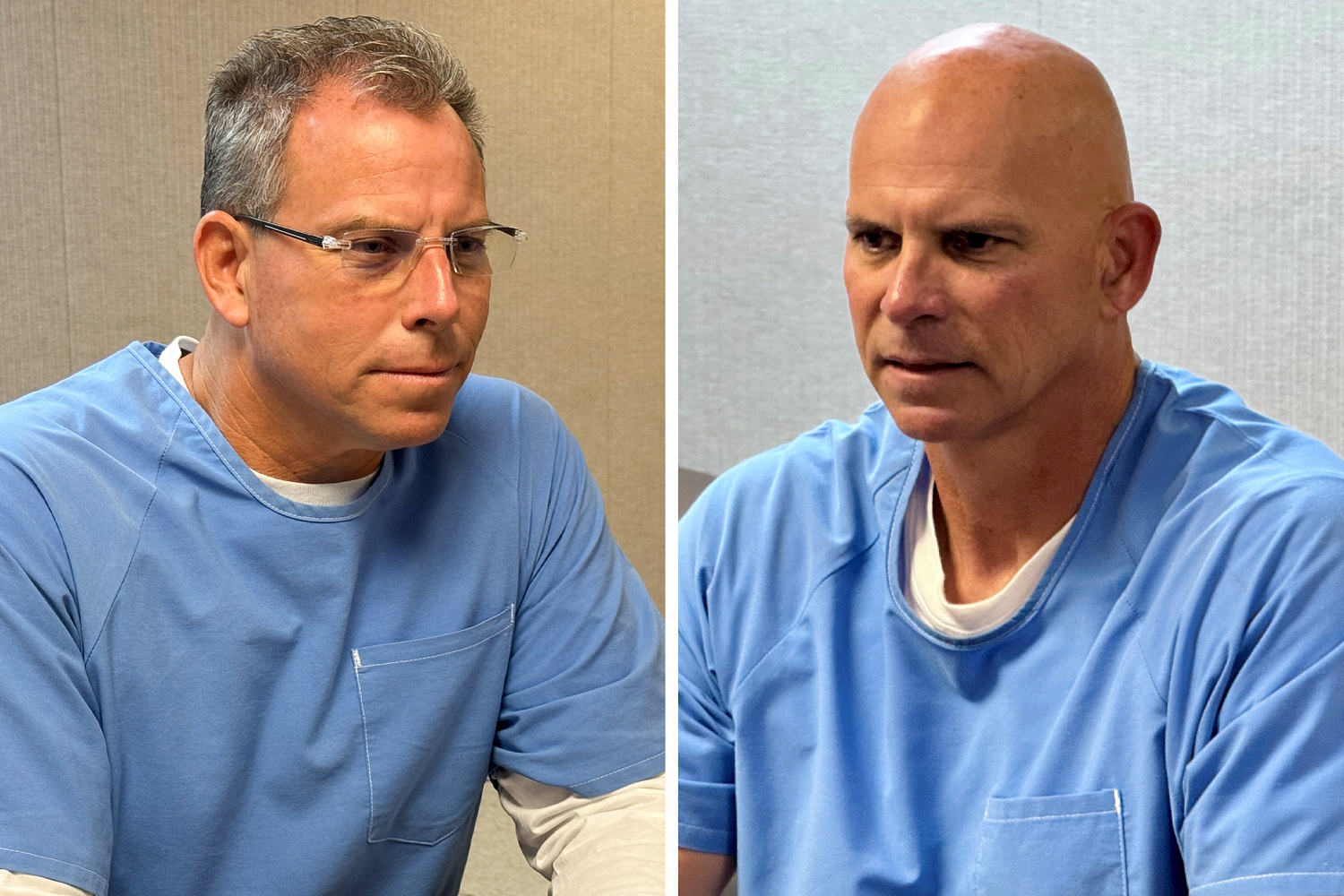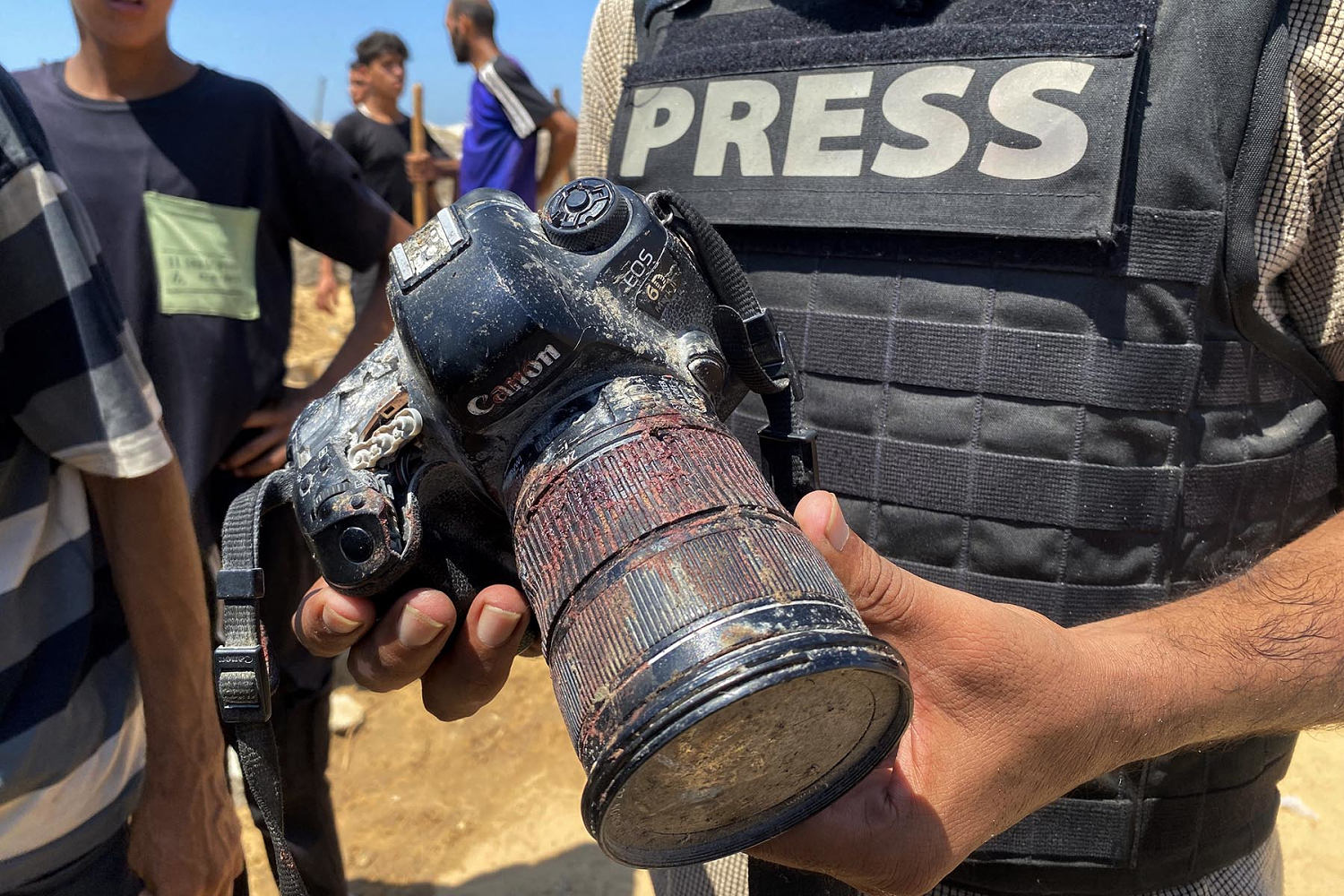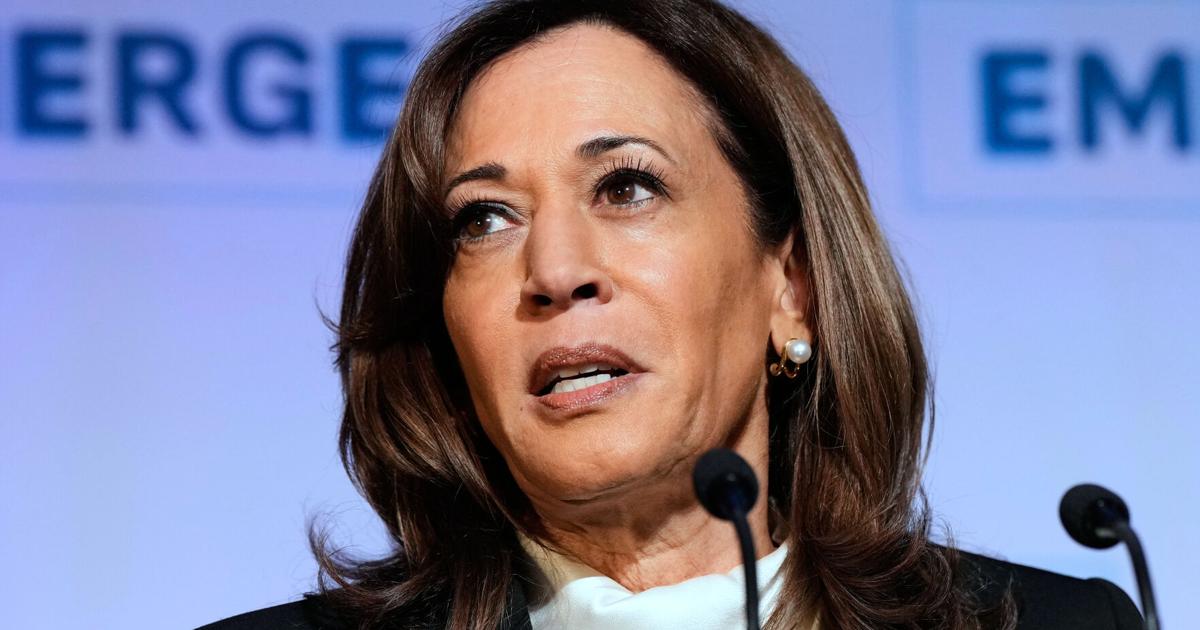The Dictatorship
The burning question at the heart of the Menendez brothers’ disappointing parole denials

Late last week, the California parole board denied the freedom of two brothers — and the hopes of the 37,000 other Californians serving life or multidecade sentences behind bars.
After marathon hearings spanning 10 and 11 hours, respectively, the California Gov. Gavin Newsom-appointed parole board remained unpersuaded about Erik and Lyle Menendez’s rehabilitation after 35 years of incarceration. The board’s rationale included the brothers’ illicit cellphone useErik Menendez’s affiliation with a prison gang involved in tax fraud and, of course, the brutality of their original crime: the murders of their parents, José and Kitty Menendez, in 1989.
It should have been an easy decision to grant the Menendez brothers parole.
With their freshly litigated youth offender statusstaggering public and family support, long-term faith and family commitments while incarcerated, and with new evidence corroborating their claims that José Menendez was sexually abusive, it should have been an easy decision to grant the Menendez brothers parole.
Yet despite over a dozen relatives’ reading letters of support at the hearings (letters given weight as “victim impact statements” given the authors’ familial relationships to the deceased), the board declared Erik and Lyle still a “moderate risk to society.”
In response to the board’s concerns about their prison records, the brothers candidly outlined the isolation and daily fights for survival that informed their every move. The cellphones were to communicate with loved ones without intense public scrutiny, they attested, and the gang affiliation was to assure safety in a violent prison environment. The brothers also took accountability for the heinous nature of the underlying offense, situating it within the context of the violence they experienced within their household. Simply put, short of living three and a half decades without any mistakes or entanglements with prison survival culture at all, the Menendez brothers appeared in front of the board with attitudes and circumstances quite obviously favoring release.
Multidecade incarceration is a uniquely American phenomenon that haunts the underpinnings of our democracy. While the United States makes up about 4% of the world population, it holds an estimated 40% of the world’s life-sentenced population, including 83% of persons serving life without the possibility of parole (the initial sentence the Menendez brothers were serving before a May resentencing that put parole back on the table).
But the key question at the heart of the Menendez case in 2025 is not whether the brothers were model inmates or eliminated all possible doubt of re-offense — it is whether three and a half decades behind bars for anyone is just. The California parole board’s inability to see the “big picture” in the Menendez case raises major concerns about the future success of longtime incarcerated people seeking parole all over California, especially those who do not have a fraction of the mitigating circumstances that the Menendez brothers do. Especially those who are not white, wealthy and subjects of a popular Netflix series. And if you have violence on your prison record from trying to survive one of the most inherently violent places on Earth? Forget about it.
California is at the forefront of progressive ideology in many areas: Reproductive freedom. LGBTQ rights. Environmental justice. Yet the state continues to elude meaningful criminal legal progress. Granting the Menendez brothers parole was an opportunity for the Newsom administration to update its stance on draconian sentences, punitive logic and mass incarceration. It was an opportunity for our country’s most forward-thinking state to take a baby step toward defying prison sentences that other democracies, including much of Europe, have deemed unjust. It was an opportunity to redefine rehabilitation not as a “politician’s word” — to quote Morgan Freeman’s character, Redd, in “The Shawshank Redemption” — but as an ever-evolving journey rarely reflected by performance in prison. Ultimately, the Menendez parole hearing was an opportunity that the Newsom administration forfeited in favor of still waters and — just maybe — limiting the ammunition of MAGA political opponents currying old-guard “tough on crime” rhetoric and fearmongering tactics.
The key question at the heart of the Menendez case in 2025 is not whether the brothers were model inmates or eliminated all possible doubt of re-offense — it is whether three and a half decades behind bars for anyone is just.
There is still hope for the brothers. They will be eligible for parole again in three years and are exploring retrial and clemency options with their attorneys. But there are thousands of inmates across California and the United States whose pathway to freedom is all the more narrow because of what the Menendez parole decision represents about the pro-carceral status quo in even our bluest state. And to those without pathways to freedom (serving life without parole sentences), California has all but signified with this decision that even a unicorn resentencing opportunity will not unshackle you.
Although recidivism rates for homicide offenders are the lowest of any crimeour elected officials continue to lead with fear over compassion when it comes to prison “lifers.” The Menendez parole hearings were a missed opportunity not only to liberate two men who have served their time — but also for California to liberate itself from outdated notions of punishment and justice.
Madeleine Lippey
Madeleine Lippey is a public defender, trial attorney and writer based in New York City. She is a graduate of Stanford and Georgetown Law and a passionate advocate for reproductive, economic, racial and criminal justice. All opinions set forth in her articles are made in her individual capacity, not as an employee of any public defender office or agency.
The Dictatorship
Pay attention to the language Israel used to justify its attack on Nasser Hospital

This week, Israel struck Nasser Hospital in Gazaone of the largest and last functioning hospitals in the besieged Gaza Strip. The strikes killed 22 peopleincluding health care workers and five journalists (working for Reuters, the AP and Al Jazeera), and injured more than 50 others.
Early reports said the Israeli military hit the hospital twice in rapid succession in what’s known as a “double-tap,” a type of sadistic warfare tactic where one first strikes a target and then follows up with another strike to hit the people who rush to help rescue victims from the initial attack. NBC News later obtained video that showed Israel in fact struck the hospital in four successive strikes.
NBC News later obtained video that showed Israel in fact struck the hospital in four successive strikes.
Israel initially didn’t offer an explanation for why it carried out this strike. But in the face of global outrage, it called the attacks a mishap and attempted to justify them by saying it was targeting a “Hamas camera” — a ludicrous statement by any measure, but especially so given the ruthlessness of a quadruple strike.
These killings are not random tragedies of war. They are the predictable outcome of a worldview promoted by the Israeli government, peddled by American officials and propagated by American and Western media that systematically dehumanizes Palestinians.
That dehumanization is not subtle. In an interview with The New Yorker’s Isaac Chotiner, former U.S. Ambassador to Israel Jacob Lew rationalized the staggering number of child deaths in Gaza by suggesting that Israel views them as “the children of Hamas.” Think about that: a justification for stripping children of their innocence, reducing them to political extensions of militants, erasing their humanity simply because of who their father was. If every child can be seen as “Hamas,” then no child is truly innocent in the eyes of Israel. And as Lew and so many others have made clear, the Biden administration readily accepted that depraved rationale.
Under President Donald Trump, we’ve seen no deviation from that logic, from callously discussing the real estate value of Palestinian land to overseeing $12 billion in arms sales and expedited military assistance to Israel to carry on with its annihilation of the population, all while reducing Palestinians to Hamas members who aren’t interested in peace.
And that same logic was at play in the Nasser Hospital attack when Israel claimed it was targeting a Hamas camera at the facility. Not a commander. Not a weapons cache. Not a rocket factory. A camera.
When Al Jazeera journalist Anas al-Sharif was assassinated along with five other journalists while inside a media tent near a different hospital in a different deadly attack on Aug. 10, Israel claimed without any evidence that he was a Hamas rocket-launching commander. When Israel bombed schools, they were “Hamas” shelters. Mosques? “Hamas” weapons depots. Refugee camps? “Hamas” hideouts. And just this week, the killing of more journalists? Blamed on targeting a “Hamas” camera.
In this Israeli narrative, Palestinians are not people. They are not journalists. They are not doctors or teachers. They are not fathers, mothers or children. They are simply Hamas.
This is not new, nor should it be shocking. It is exactly what Israeli officials have been saying since they launched their genocidal war on Gaza following Hamas’ Oct. 7, 2023, attack in which 1,100 Israelis were killed and more than 250 hostages were taken, including soldiers and civilians, when President Isaac Herzog declared “there are no innocent civilians” in Gaza.
Equally insidious is the narrative that Israel claims when it faces global outrage. In April 2024, when Israel struck a World Central Kitchen aid convoy, killing seven humanitarian workers, the Israeli military called it a “grave mistake.” But it took no measures to mitigate such killings in the months and months that have followed.
These are not aberrations. They are patterns excused by the language of error while the system of impunity rolls on.
But these tactics only work in part because Western media, and specifically American media, so often takes these statements at face value. The Wall Street Journal published an op-ed titled “Who is a ‘journalist’ in Gaza?” that all but accused Palestinian reporters of being Hamas propagandists based on unsubstantiated and unverified claims.
These strategies — Israel labeling everything as a “Hamas” target or dismissing attacks that draw condemnation as “tragic mistakes” — gain strength largely because Western media echoes them.
Even more depraved was an article in Bari Weiss’ “The Free Press” that suggested that Palestinians suffering and dying from starvation in Gaza were suffering from “pre-existing medical conditions.” That distortion was so appealing to the Israeli government that Prime Minister Benjamin Netanyahu, an indicted war criminal, shared it on his official X account. Think about that: an indicted war criminal amplifying an American media outlet that trivialized starvation in Gaza due to the bad health of Palestinians.
Together, these strategies — Israel labeling everything as a “Hamas” target or dismissing attacks that draw condemnation as “tragic mistakes” — gain strength largely because Western media echoes them rather than challenges them.
Dehumanization drives the narrative. Mistakes go unpunished and the media launders them repeatedly.
History has taught us that atrocities are only made possible by campaigns of industrial dehumanization. For Palestinians, Israel has been leading that campaign for decades, and it has intensified it since Oct. 7.
To justify its genocide in Gaza, whether bombing a hospital or attacking journalists and aid workers, Israel does not need to provide any credible evidence. It simply needs the world, with the help of American media, to believe that Palestinian lives do not matter.
The world must reject this perverted logic. The deaths at Nasser Hospital should not just shock us. They lay bare how the language of dehumanization — “children of Hamas,” “pre-existing conditions,” “Hamas camera” — becomes a license to kill Palestinians. And they remind us that defending Palestinian dignity is not simply a political stance, it is a moral imperative.
Ayman Mohyeldin is an BLN anchor who has long reported on the Middle East and the Arab world. He is a host of “The Weekend: Primetime”which airs at 6 p.m. ET Saturdays and Sundays.
The Dictatorship
An easy way to counter Trump’s crime push is sitting in the Democrats’ back pocket

President Donald Trump’s recent focus on urban crime presents a classic dilemma for Democrats.
If they point out that his lurid portrait of a violent epidemic is inaccurate, they risk turning off voters who agree with him on an emotional level. But if they go along with it, they risk legitimizing his power grab.
Trump and his Republican allies clearly hope to ride this issue all the way into next year’s midterms, so Democrats need to come up with a counteroffensive soon.
Fortunately for them, there is a group of Democrats who know exactly how to run — and win — while talking about fighting crime effectively: big-city mayors.
Baltimore Mayor Brandon Scott told me that they are in a much better position than members of Congress or other national Democratic leaders to push back against Trump on crime.
“They should be lifting us up and allowing us to be the folks that are pushing the message, instead of trying to do the same thing that they always do,” he said. “They don’t know anything about reducing crime and violence. They don’t have to do it. They don’t have to deal with it.”
Democrats don’t just win mayoral races in the U.S. these days; they dominate them. Twenty-one of the 25 biggest cities in the U.S. are run by Democrats.
In each of those races, they face a similar set of local issues: taxes, schools and crime.
On the national level, voters tend to trust Republicans more to fight crimeyet Democrats regularly win mayoral races on the issue. That’s because they take the issue seriously.
When crime happens, mayors are the first responders of politics. After a mass shooting at a Minneapolis Catholic school earlier this week, Mayor Jacob Frey gave an emotional speech from the scene about the need for more than just thoughts and prayers.
Mayors also understand at a gut level something national Democrats often overlook, which is that emotional truth matters as much as the facts on the ground.
It’s a similar issue Democrats faced with the economy in 2024. The macroeconomics and the data sheets pointed to a resilient economy, but how people felt about the economy overpowered all of that.
You can’t win a race for mayor by pointing to a spreadsheet if voters are scared.
At the local level, the same is true for crime. You can’t win a race for mayor by pointing to a spreadsheet if voters are scared.
“Every good police executive also has to be concerned about the perception of crime. If the numbers are going down and people are not feeling safe, then you’re in the same place. You have a crime problem,” said former Rep. Val Demings, who previously served as a police chief.
Like most Democrats, Demings thinks Trump’s decision to send armed National Guard troops into D.C. and take over the local police department is a political stunt and a massive overreach.
But at the same time, she was clear the party has to embrace a smarter message on public safety, an issue that cuts across race, education and socioeconomic status.
When Republicans propose throwing more police at the problem, Democrats can be the party that focuses on initiatives that have been tested and shown to reduce the “social ills that caused decay in the first place,” such as high unemployment, substandard education and poor housing and living conditions, she said.
Other Democratic strategists said that the party will also need to talk directly to the people hurt by crime, making sure they feel heard and having nuanced conversations that don’t just resort to talking points.
Polls show that Democrats face a crime problem. A recent AP-NORC survey found that two-thirds of U.S. adults think crime is a major problem in the country overall, and 81% think it’s a major concern in cities.
Only 24% of voters thought crime was a major problem in their own community.
At the same time, only 24% of voters thought crime was a major problem in their own community.
Trump could easily overplay his hand, too. While the majority of respondents supported the idea of having the U.S. military and National Guard assist local police, most opposed the idea of the federal government taking control of a police department, as Trump did in D.C.
It was also easier for Trump to send the National Guard into D.C., which is not a state. If he follows through on his threat to send it into cities such as Baltimore, Chicago and New York over the objection of state and local officials, the mood might shift.
The mayors of those cities could play a big role in that.
Baltimore’s Scott, who is in constant touch with other Democratic mayors of big cities, says they are frustrated that the national party isn’t making more use of them.
Imagine if the Democratic National Committee held weekly events with mayors across the country on what they are doing to reduce crime. Or if the DNC or any of the other organizations tasked with winning elections were cutting and funding ads that could uplift the work of these mayors across the country.
Is it a silver bullet? No. But just spewing facts at people isn’t going to solve the perception issue.
“There is no way to have a winning message or strategy around gun violence, the drop in crime and all of that, and not include local mayors. Because at the end of the day, when it goes bad, they too are calling the mayor. ‘What are you and the police doing? What is this community violence intervention group doing?’ So now, let us lead. And you can lead from behind,” he said.
For more thought-provoking insights from Eugene Daniels, watch “The Weekend” every Saturday and Sunday from 7 to 10 a.m. ET on BLN.
Eugene Daniels
Eugene Daniels is an BLN senior Washington correspondent and co-host of “The Weekend,” which airs on Saturdays and Sundays from 7 to 10 a.m. ET on BLN.
The Dictatorship
Trump ends ex-Vice President Harris’ Secret Service protection early after Biden had extended it

WASHINGTON (AP) — President Donald Trump has revoked former Vice President Kamala Harris’ Secret Service protection that otherwise would have ended next summer, senior Trump administration officials said Friday.
Former vice presidents typically get federal government protection for six months after leaving office, while ex-presidents do so for life. But then-President Joe Biden quietly signed a directive, at Harris’ request, that had extended protection for her beyond the traditional six months, according to another person familiar with the matter. The people insisted on anonymity to discuss a matter not made public.
Trump, a Republican, defeated Harrisa Democrat, in the presidential election last year.
His move to drop Harris’ Secret Service protection comes as the former vice president, who became the Democratic nominee last summer after a chaotic series of events that led to Biden dropping out of the contestis about to embark on a book tour for her memoirtitled “107 Days.” The tour has 15 stops, including visits abroad to London and Toronto. The book, which refers to the historically short length of her presidential campaign, will be released Sept. 23, and the tour begins the following day.
A recent threat intelligence assessment the Secret Service conducts on those it protects, such as Harris, found no red flags or credible evidence of a threat to the former vice president, said a White House official who also insisted on anonymity to discuss internal deliberations. The administration found no reason Harris’ protection should go beyond the standard six-month period for former vice presidents, the official said.
Trump’s vice president from his first term, Mike Pence, did not have extended Secret Service protection beyond the standard six months.
Still, it is not unusual for Secret Service protection to continue well beyond the statutory six-month window, particularly when former officials face credible and ongoing threats. But Trump’s decisions to revoke the protection have stood out both for timing and for targets.
During Trump’s second presidency, he repeatedly has cut off security for adversaries and figures who have fallen from favor, including his onetime national security adviser John Bolton and members of Biden’s family, including the former president’s adult children. Outgoing presidents can extend protection for those who might otherwise not be eligible; Trump did so for his family after leaving office in 2021.
The decision to strip Harris of protection is certain to raise alarms among security experts who view continuity of protection as essential in a polarized climate.
A senior Trump administration official said an executive memorandum was issued Thursday to the Department of Homeland Security ending Harris’ security detail and security services. Those had been extended from six to 18 months by the Biden administration, so they would have ended in July 2026, but now they will be terminated on Monday.
Harris lives in the Los Angeles area. The city’s Democratic mayor, Karen Bass, called Trump’s decision “another act of revenge following a long list of political retaliation” and warned that it would endanger Harris. Bass said she plans to work with California Gov. Gavin Newsom, a fellow Democrat, to ensure the former vice president’s safety, and she and Harris have already been in touch about the issue, according to a person with knowledge of the discussions.
While she lost to Trump last November, Harris is seen as a potential candidate for 2028, and she has already announced she will not run for California governor in 2026. Harris is also a former senator, California attorney general and San Francisco district attorney.
Last year was a particularly politically charged environment with Trump facing two assassination attempts, and the Secret Service played a crucial role in protecting the now-president. While questions remain about how the agency prepared for a July 2024 rally in Butler, Pennsylvania, a Secret Service counter sniper shot a gunman dead after he fired eight shots, killing an attendee, wounding two others and grazing Trump’s right ear. Trump chose one of the agents who rushed to the stage to shield him, Sean Curran, to lead the agency earlier this year.
The news of the security revocation was first reported by BLN.
___
Gomez Licon reported from Fort Lauderdale, Fla.
-
Uncategorized10 months ago
Bob Good to step down as Freedom Caucus chair this week
-

 The Josh Fourrier Show10 months ago
The Josh Fourrier Show10 months agoDOOMSDAY: Trump won, now what?
-

 Politics10 months ago
Politics10 months agoWhat 7 political experts will be watching at Tuesday’s debate
-

 Politics6 months ago
Politics6 months agoFormer ‘Squad’ members launching ‘Bowman and Bush’ YouTube show
-

 Politics10 months ago
Politics10 months agoHow Republicans could foil Harris’ Supreme Court plans if she’s elected
-

 The Dictatorship6 months ago
The Dictatorship6 months agoPete Hegseth’s tenure at the Pentagon goes from bad to worse
-
Economy10 months ago
Fed moves to protect weakening job market with bold rate cut
-

 Politics10 months ago
Politics10 months agoRFK Jr.’s bid to take himself off swing state ballots may scramble mail-in voting









